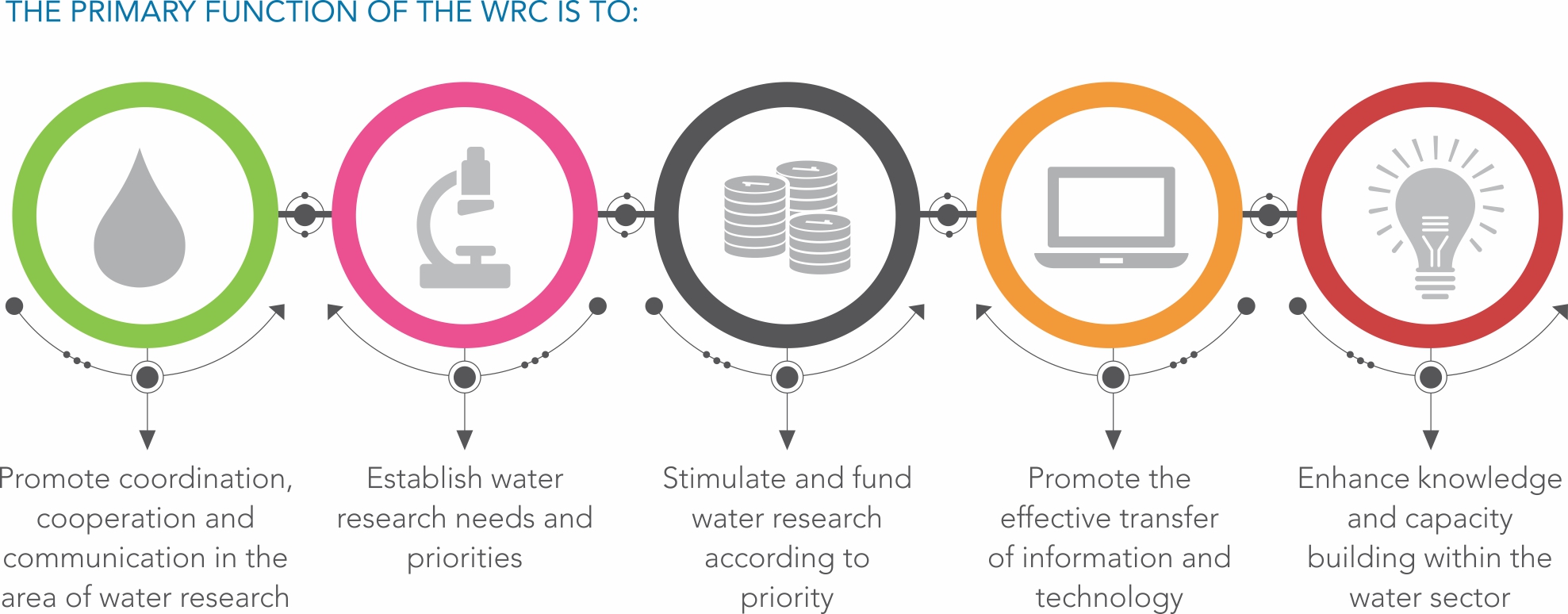Mandate
The WRC was established in terms of the Water Research Act (Act No 34 of 1971), following a period of serious water shortage. It was deemed to be of national importance to generate new knowledge and to promote the country’s water research purposefully, owing to the view held that water would be one of South Africa’s most limiting factors in the 21st century. In 1971 when the WRC was founded, water research and development (R&D) in South Africa was limited to a few institutions and the funding level inadequate. There was no research co-ordination and an apparent neglect of some key research fields. In addition, there was little strategic direction or leadership that would provide for the identification of priority areas or appropriate technology transfer. It was to address these issues, that the WRC was established.
Currently, South Africa is still under threat of a lack of sufficient water, while water quality and availability issues are becoming more acute. However, the country is much better prepared to deal with this problem owing to the WRC’s meaningful contribution to the developmentof the capacity of the water sector, the broadening of the country’s water-centred R&D base, and the WRC’s continued commitment to direct and fund research on critical issues.
In the future (short- to long-term), it is envisaged that South Africa’s water problems may intensify. Issues such as water for all, quality of life, and a sustainable environment are an essential part of the country’s national priorities and require considerable attention. In addition, implementation of the National Water Act of 1998 and the related national water strategy places considerable demand on water management and calls for research support. The role of South Africa in SADC and NEPAD (New Partnership for Africa’s Development), especially with regard to water resource and water supply and sanitation issues, poses new challenges and requires new initiatives which are within the mandate of the WRC.

